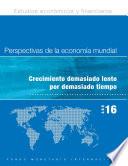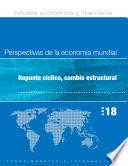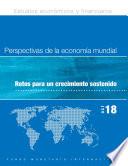Perspectivas de la economía mundial, abril de 2014

Prosigue la lenta recuperación de la economía mundial tras la crisis financiera mundial, aunque ahora el ímpetu de crecimiento gira en torno a las economías avanzadas. En la edición de abril de 2014 del informe WEO se examinan las causas e implicaciones de tendencias recientes, como la mayor volatilidad financiera en las economías de mercados emergentes, una inflación inferior a lo previsto en las economías avanzadas y el repliegue de las políticas monetarias acomodaticias. Se analizan las prioridades de política para las economías avanzadas y las economías de mercados emergentes. ...




